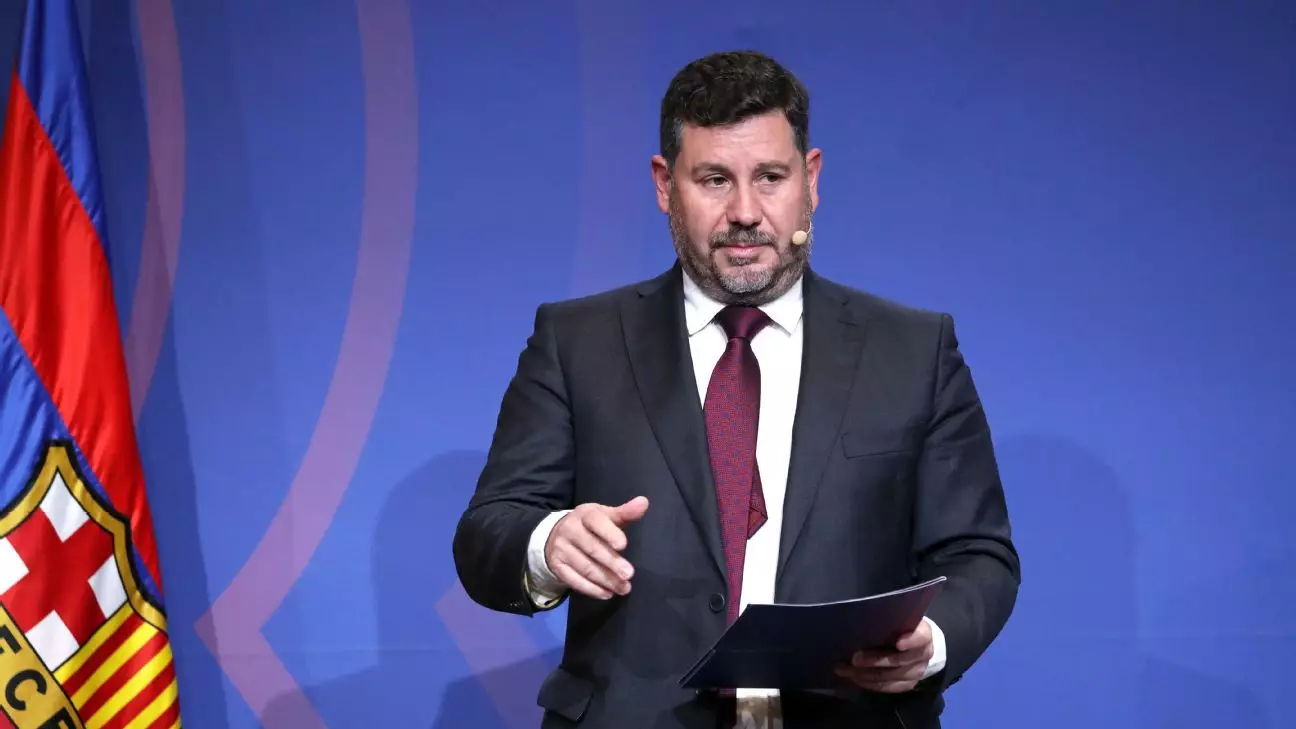Barcelona’s vice president of finance, Eduard Romeu, has recently stepped down from his position, citing professional reasons for his decision. This resignation comes amid a series of departures of directors and executives since Joan Laporta was elected as the president three years ago. The timing of Romeu’s departure is significant, given the ongoing economic challenges facing the Catalan club. Despite efforts to improve the monetary situation under Romeu’s leadership, Barcelona still finds itself exceeding their LaLiga-imposed annual spending limit by approximately €200 million ($218.8m). Additionally, the club is struggling to meet their budgeted income for the 2023-24 campaign, which was set at €859 million and must be achieved by June 30.
As a result of these financial difficulties, Barcelona may be forced to consider selling key players in the upcoming transfer window to alleviate their financial burdens. In fact, there have been reports of interest in defender Ronald Araújo from other clubs. Romeu’s resignation, attributed to an “incompatibility” with new professional commitments, has raised concerns about the club’s financial management moving forward. Laporta acknowledged Romeu’s contributions to the club’s financial stability, but also emphasized that there is still work to be done. Despite Laporta’s positive outlook on Barcelona’s financial recovery, recent setbacks such as the unsuccessful sale of a stake in Barça Studios have highlighted the continued challenges faced by the club.
Following Romeu’s departure, Laporta announced that the responsibilities of the vice president of finance will be temporarily taken over by current members of the economic department at the club. This latest change in leadership adds to the ongoing upheaval within the organization since Laporta’s election in March 2021. With Romeu joining a long list of officials who have resigned in recent years, including CEO Ferran Reverter, Barcelona faces a period of transition and uncertainty in both its financial management and football operations.
Future Outlook and Stability
Moving forward, Barcelona will need to address their financial challenges and ensure stability within the organization to sustain their competitiveness on and off the field. The club must find a balance between achieving success in competitions and maintaining financial discipline to avoid breaching spending restrictions. Laporta’s leadership will be crucial in navigating these turbulent waters and steering Barcelona towards a more sustainable financial future. As the club continues to evolve in response to external pressures and internal changes, maintaining transparency, accountability, and strategic planning will be essential to overcoming the current challenges and securing long-term success.
